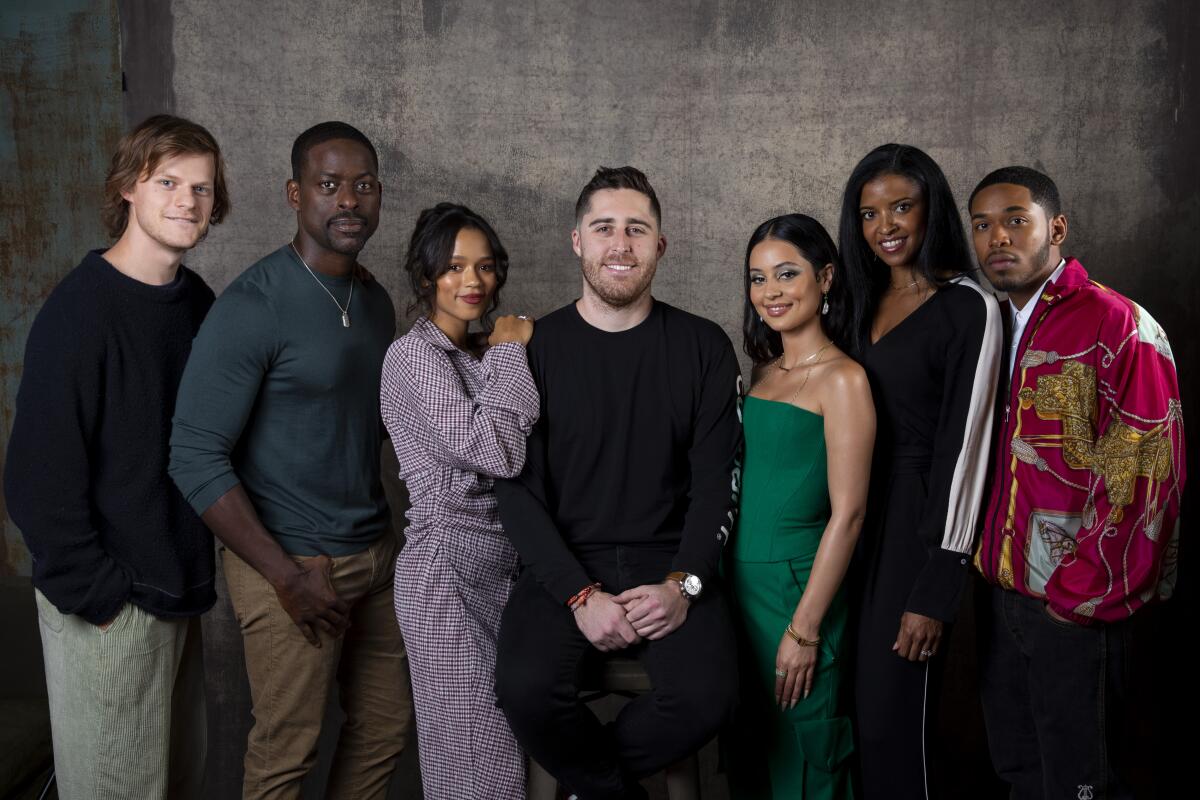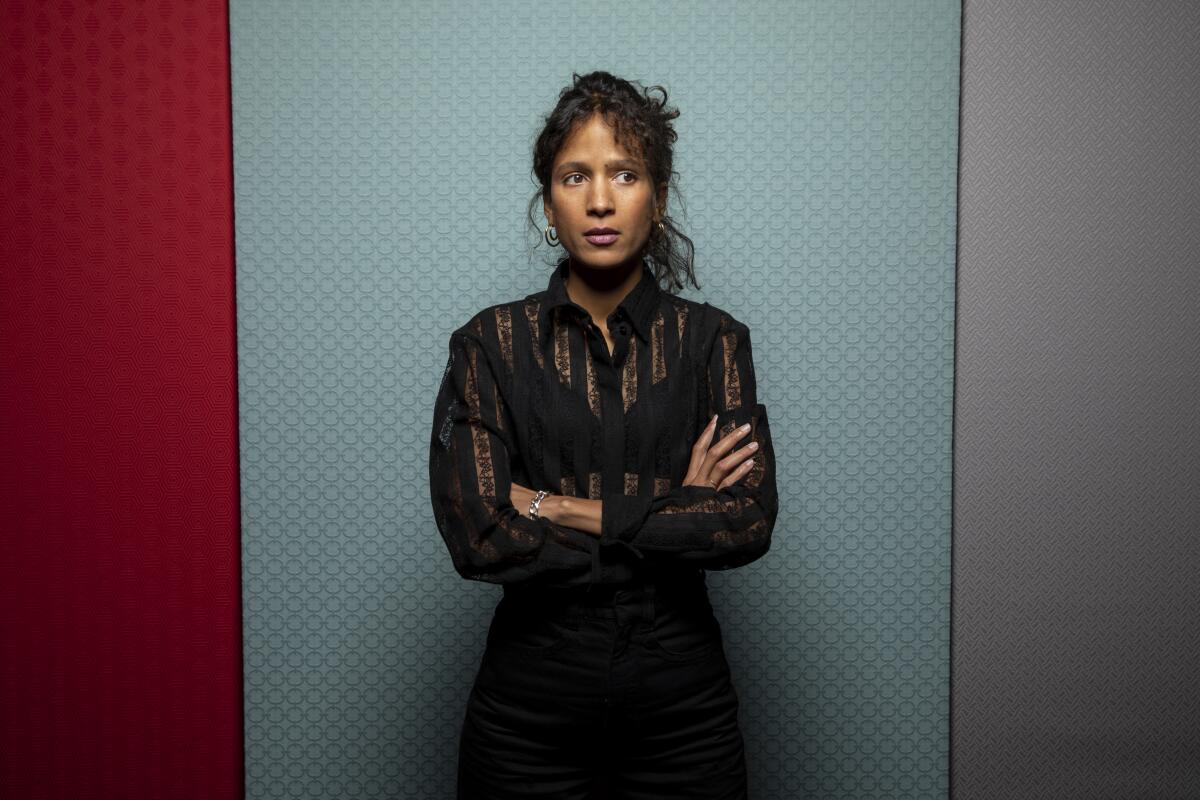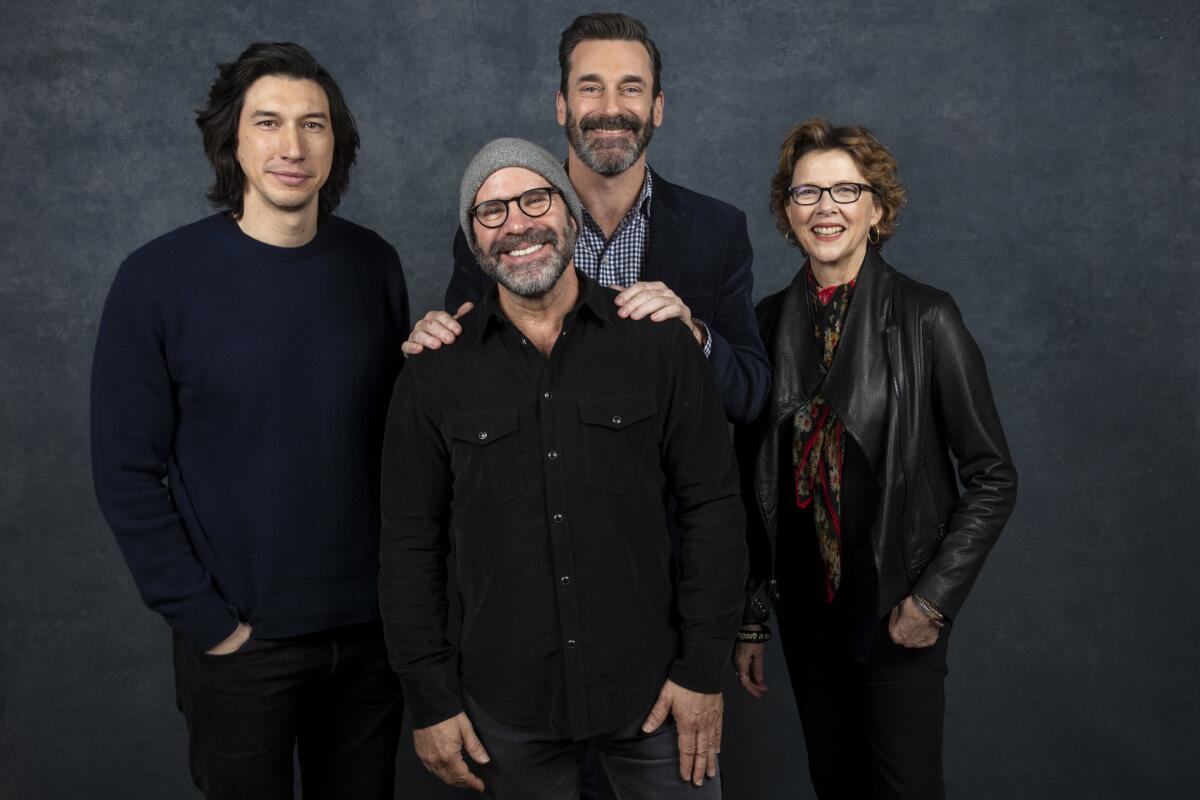Indie Focus: A family torn apart in ‘Waves’
- Share via
Hello! I’m Mark Olsen. Welcome to another edition of your regular field guide to a world of Only Good Movies.
Only good movies
Get the Indie Focus newsletter, Mark Olsen's weekly guide to the world of cinema.
You may occasionally receive promotional content from the Los Angeles Times.
This week on our entertainment podcast “The Reel,” I talked to James Mangold, director of “Ford v Ferrari.” The new film tells the story of auto racer turned car designer Carroll Shelby (Matt Damon) as he and driver Ken Miles (Christian Bale) try to make the Ford Motor Co. competitive against Ferrari at the Le Mans 24-hour race.
For Mangold, the story’s central notion of struggling to create unique work within an industrialized system was something he could very much relate to.
“I deeply connected with it on that level,” said Mangold. “The effort to play in the big game but retain your own vision … that is a kind of barometer or test I put on every project. What are we saying here? What are we bringing to you that’s interesting? And certainly in ‘Ford v Ferrari,’ the art/commerce battle, commingled with a sports movie, the battle for a voice, for a point of view. And the fact that everybody is so codependent and needs each other. I mean, Ford needs Carroll Shelby as much as they can’t stand dealing with them.”
This weekend the American Cinematheque will launch a series of rare screenings of beautiful nitrate film prints at the Egyptian Theatre. Christopher Nolan will be there to introduce Alfred Hitchcock’s “Rebecca” and Alexander Payne will introduce Edmund Goulding’s “Nightmare Alley.”
The Cinematheque’s Aero Theatre will have a weekend tribute to Laura Dern, including the exciting triple bill of “Marriage Story,” “Blue Velvet” and “Wild at Heart” with Dern in person. “Rambling Rose” and “Smooth Talk” will screen as well.
This week there will be Envelope Live screenings of the Ukrainian film “Homeward,” the Israeli “Incitement” and the Facebook Watch series “Limetown.” For more information, visit events.latimes.com/screenings.

‘Waves’
Written and directed by Trey Edward Shults, “Waves” is the story of a family torn apart by tragedy and what they make of their lives in the aftermath. With a bold visual style, the film stars Kelvin Harrison Jr., Sterling K. Brown, Alexa Demie, Taylor Russell, Renée Elise Goldsberry and Lucas Hedges.
In a review for The Times, Justin Chang wrote, “Shults’ subject, here as in his earlier features ‘Krisha’ and ‘It Comes at Night,’ is the fragility of the American family. ‘Waves’ strikes me as perhaps his wildest, most undisciplined essay on that subject, and also his grandest and most affecting. The brash showmanship of his technique can sometimes overpower the subtler emotional demands of his material, but it also touches deep reservoirs of feeling that a more cautious approach might never have managed. More than anything, this is the work of a filmmaker who is never content merely to record action like a passive observer.”
For The Envelope, Gary Goldstein interviewed Shults, Harrison and Russell, and Shults spoke about collaborating with Harrison on the lead character. “It’s deeply, deeply personal, drawing on things loved ones and I have lived. But the story grew bigger than me as I started talking things out with Kel: our past experiences, how we were at Tyler’s age, relationships with our families.”
For the New York Times, Manohla Dargis wrote, “Like Barry Jenkins, the Safdie brothers and Robert Eggers, Shults belongs to a group of young American expressionists who, despite the differences in their subjects, share a commitment to visual storytelling. (Dee Rees’ ‘Pariah’ falls into this camp too.) Words remain crucial for these filmmakers, of course. But they use visual style to express inner worlds, and show interiority instead of explaining it, unlike some of their chattier, more TV-ready peers.”
For Vanity Fair, K. Austin Collins wrote that “‘Waves,’ though, winds up being a mixed case: a fascinatingly grand attempt to spin an intergenerational tale of masculinity’s pains and paradoxes, yet one that looms so largely and loudly over its story that the rough nuances keep tilting into cliched vaguery. The film is broken into two parts, and there’s already been chatter about which is the finer half.”
‘Atlantics’

With “Atlantics,” her feature debut, French-Senegalese filmmaker Mati Diop became the first black woman director in the main competition at Cannes earlier this year and took the festival’s second-place Grand Prix award. Set in Senegal, Diop’s film manages both to be rooted in the reality of migrant labor and day-to-day struggles and also to take on an otherworldly feeling.
Reviewing for The Times, Justin Chang wrote, “What begins as a realist snapshot of the global migrant crisis gradually expands into an aching story of love, loss and the return of the repressed. Along the way it detours into a mystery, a ghost story and a tale of bodily possession — a transformation achieved with a few eerie visual touches that are all the more persuasive for their lack of fuss. Drawing on a potent vein of local mythology, Diop weaves these paranormal elements into her canvas with thrift, ingenuity and bracing matter-of-factness. In her hands, a vengeful ghost seems no more absurd or irrational than, say, the futuristic high-rise tower that’s being erected on the coast.”
For the New York Times, A.O. Scott wrote, “The real horror Diop wants the audience to face doesn’t come from anything supernatural but from harsh facts of life. It’s almost impossible for a filmmaker to face those squarely, without succumbing either to exploitative misery-mongering or to vaguely progressive sentimental humanism. … Like ‘Parasite,’ its fellow Cannes honoree, it testifies to the variety and vitality of politically alert genre filmmaking. It’s a suspenseful, sensual, exciting movie, and therefore a deeply haunting one as well.”
For The Atlantic, Hannah Giorgis said, “Crucially, ‘Atlantics’ upends the stark realism with which many migrant narratives are told: There is no documentary footage spliced in, no ominous cuts to the strife that awaits Souleiman and the other men in Europe. The result is a transportive love story with an undercurrent of social critique that manages to be at once haunting and hopeful.”

‘The Report’
Written and directed by Scott Z. Burns, “The Report” is the fact-based story of how Senate investigator Daniel J. Jones (played by Adam Driver) worked for years and years to complete a report on the CIA’s use of torture after 9/11.
And allow me to shamelessly stump for Annette Bening, who gives a riveting supporting performance as Sen. Dianne Feinstein, including a deeply stirring speech from the floor of the Senate.
Reviewing for The Times, Carlos Aguilar wrote, “Faced with the nadir of their campaign for transparency, Feinstein characterizes the 5,000-page document as an ‘enduring history’ with intrinsic value independent from its publication or the redactions inflicted on it by those fearful of its contents being unleashed. In the same manner, cinema holds the power to immortalize or debunk prescribed narratives through intellectually elucidating works like ‘The Report,’ because as perturbing as the findings of a country looking at itself in a smudged mirror may be, the assertion that the truth must prevail is what’s truly patriotic.”
For The Times, Emily Zemler interviewed Bening, who spoke about how she approached playing Feinstein. “We’re not here to make heroes of anybody. We’re here to tell the truth. It was important to all of us. That feels very good to be able to say — we all wanted to get out of the way as much as possible and tell the story of what happened in this recent event. I wanted to do enough where you would believe it was her. Just enough where you’re focusing on the story and not on anything else.”
Also for The Times, Hugh Hart spoke with Burns —who also wrote the recent Steven Soderbergh film “The Laundromat” — about the timeliness of his newer movie. “Unfortunately, we’ve come to regard oversight as a political maneuver, but it’s really not political at all. If there’s evidence that a crime was committed, you need to investigate that. This is the duty of our elected officials.”
Email me if you have questions, comments or suggestions, and follow me on Twitter: @IndieFocus.
More to Read
Only good movies
Get the Indie Focus newsletter, Mark Olsen's weekly guide to the world of cinema.
You may occasionally receive promotional content from the Los Angeles Times.










